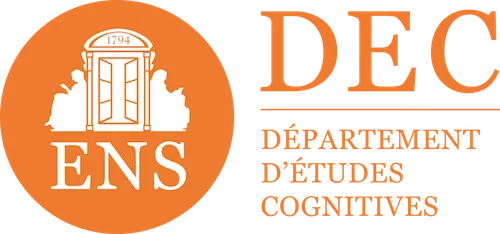

How Didask supports civic service actors
A concrete case of setting up training for young learners with the Didask solution
Mathilde Bellini, director of activities Unis-Cité Relais, tells us about the training challenges within his association. To train its 300 employees, it has chosen Didask pedagogy and technology. We are happy to share his testimony with you.
What is the mission of Unis-Cité?
Unis-Cité is the pioneer association and expert in Civic service for young people in France. For almost 25 years, every year, we have been supporting thousands of young people from different levels of education, social, cultural and beliefs, in a 6 to 9 month citizen engagement program carried out as a team for an effective experience of diversity.
Across our entire network, there are approximately 300 employees who are mobilized to welcome and support these young people, from the most administrative aspects to their supervision in the field. Around 50% of these employees are “team and project coordinators”, in other words the tutors of these volunteers, those who support them in their team life and the realization of their missions.
For these employees, we have been working for several years to offer a training plan that meets everyone's needs, allowing them to feel good in their position, to have all the keys to understanding our structure, and to be able to evolve.

Training Civic Service young people with Didask's e-learning solution
Why did you choose to collaborate with Didask to train your Civic Service young people?
Our network is very geographically fragmented, antennas are present throughout the country, it is difficult to bring together the people concerned when we want to offer training. This is costly, in terms of money and time, and sometimes even in the energy spent on travel, not to mention the logistical organization that this can require. Our network has grown recently and rapidly, and we can't function the way we used to. Some employees arrive during the year, at a time when the training courses they would be interested in are not scheduled... you have to be able to train throughout the year. Moreover, the volunteers are of course young, but most of our employees are also young (much under 30), they come from the “digital” generation.
We therefore wanted to respond both to the need to disseminate knowledge remotely, not always in person, throughout the year, and to continue to Pushing Unis-Cité into the digital age, which was reinforced by the launch, at the same time, of an intranet for our network.
The encounter with the Didask method immediately seduced us: the The fun side of learning, the benevolence and the usefulness of mistakes, and taking into account the “time” data seemed quite convincing to us and made us want to get started in our turn.
What are the key training topics for Unis-Cité?
One of our key subjects is the training of our employees in mastery of the various missions of the Civic Service. Indeed, the missions carried out by our volunteers are part of different programs, depending on their nature and their objectives. These programs benefit from national engineering, with support from the Unis-Cité headquarters, and are then implemented locally. Let me take an example: The “Inter” program, in the context of which The mission of young people is to create links with elderly people & to get them out of their isolation. For this mission, we must train all coordinators in the objectives and expectations of the mission, in the theme of old age, in knowing the mission itself and the possible tasks to be carried out by volunteers, etc.
Another key topic is the question of management. Whether it is the management of coordinators towards volunteers (therefore non-hierarchical management) or that of our branch managers or regional directors. We are an association in which all employees adhere to the project and put a lot of meaning into their work, which can lead to overinvestment in missions, and sometimes to exhaustion or a lack of limits. It is by one vigilant and quality management that we think we can make everyone feel good in their job.
How does Unis-Cité use Didask today?
At Unis-Cité, Didask is currently used to essentially meet training needs on our national programs. Each program is the subject of a course including a series of exercises to understand and master its challenges, its objectives, its operation, its specific rules, etc. Thus, each newcomer can draw from the corresponding training the information he needs, before meeting his colleagues and talking directly with them. Besides, it is a model of” Blended-learning ” which is recommended here, as in most places where distance training is distributed: employees are invited to attend Didask training courses before a time for meetings, exchanges or face-to-face training. This makes it possible to approach the essential concepts beforehand from a distance, and to come and dig, answer questions, and exchange practices, when we meet again.
Finally, we also created a More focused on “Human Resources” on all the questions an employee can ask in Unis-Cité: your employment contract, your holidays, your benefits, your mileage expenses... It is a much more fun medium to address these questions than reading the complete HR guide! For my part, I always prefer to answer “why wouldn't you make this little Didask capsule? ” that “go read the guide X”.
In the long term, the objective is to enable the ownership of Didask by all employees, to make the use of this very beautiful tool a real reflex. It is up to us to develop a real community animation around our training platform, so that everyone can use it when and how they want according to their desires and needs.
Another example of Didask's involvement in the apprenticeship of young people in associations : The Article 1 & Didask association: a look back on 5 years of partnership at the service of young people.
Make an appointment directly with our eLearning experts for a demo or simply more information.













